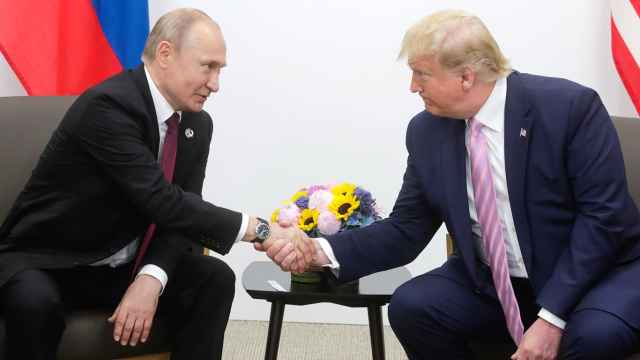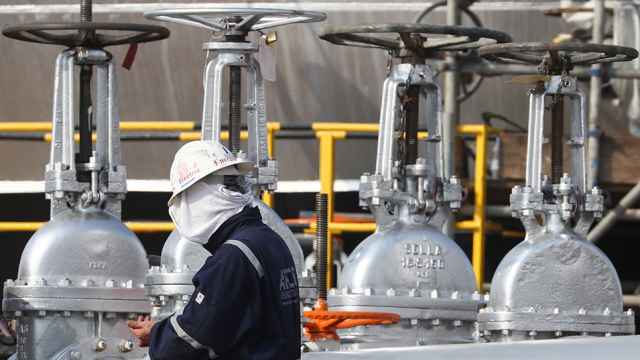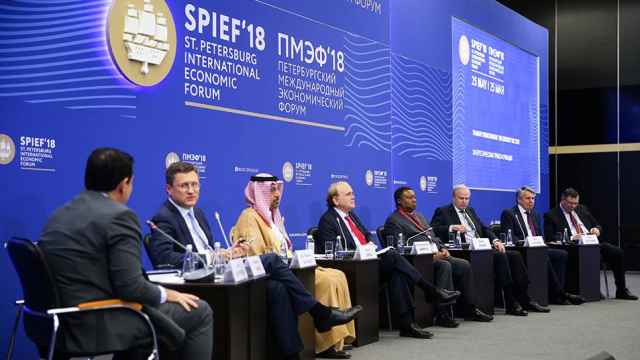U.S. President Donald Trump’s campaign pledge to end the Russo-Ukrainian war within 24 hours of assuming office has fallen flat. As well as failing to extract a single concession from Moscow and hinting at premature sanctions relief, Trump's selection of Saudi Arabia as a neutral venue for peace talks goes to show how gifting his long-time Middle Eastern patron bragging rights takes precedence over actually saving lives.
Granted, there were few options for where negotiating teams could convene, as most senior Russian officials are barred from entering the EU. Furthermore, fence-sitting middle powers like India, Kazakhstan and Indonesia had no real appetite to spearhead mediation efforts. Riyadh’s recent decision to plow $600 billion into the U.S. economy during Trump’s second presidential term almost certainly also had a bearing on the Saudis being offered a seat at the table.
That said, Saudi Arabia’s self-serving agenda means both warring parties are not necessarily any closer to a blanket cessation of hostilities today than before its intervention. Crown Prince Mohammed Bin Salman (MBS) is keen to demonstrate that he has come of age as a statesman in the eyes of the international community. The limited agreement Russia and Ukraine struck in Riyadh last week to halt attacks on each other’s energy infrastructure and ensure freedom of navigation across the Black Sea bodes well for the Saudi ruler, drowning out negative press coverage of his past follies. These include locking up Saudi oligarchs accused of corruption, shaking them down for billions of petrodollars at the very same Ritz-Carlton that hosted the latest round of deliberations.
Despite spending more than $100 million on American lobbyists since 2016, Saudi Arabia is still struggling to rehabilitate its image and attract foreign direct investment as part of MBS’ lofty Vision 2030 strategy to diversify away from fossil fuels. Being associated with an outwardly virtuous, albeit deeply flawed, Washington-led initiative to restore normalcy in Eastern Europe not only depicts the Saudi regime as a responsible actor but places it as a frontrunner to mediate potential rapprochement between the United States and Iran should Trump pursue diplomacy instead of cowboy tactics toward Tehran.
Nonetheless, the House of Saud is far from an impartial arbiter. After all, it is inconceivable that an ultra-conservative family dictatorship with a poor human rights record can relate to an attritional battle being fought in the name of defending democracy, much less sympathize with the Ukrainians as victims of unprovoked aggression. Whether it be conflating peaceful activists with terrorists, using troll farms to advance their malign interests abroad, or overseeing transnational repression and extrajudicial killings, the extent to which MBS’ governance style mirrors that of President Vladimir Putin should give Kyiv pause.
Worse yet, the two like-minded autocrats happen to be equally staunch proponents of the principle that might makes right. Just as Russia’s war was intended to last a matter of days, Saudi Arabia’s adventurism in neighboring Yemen at MBS’ behest was predicated on a similar miscalculation that its weaker neighbor would crumble, until the Iranian-backed Houthi rebels stalemated the conflict by targeting Aramco’s facilities with cruise missiles.
As the world’s biggest crude producers and exporters, Riyadh and Moscow actively collude within OPEC+ to artificially jack up oil prices whenever their books need balancing. According to the International Monetary Fund, Saudi Arabia cannot break even unless Brent crude hovers at around $96 per barrel. Given the ballooning budget deficit they are running to bankroll futuristic giga-projects such as NEOM and Qiddiya — not to mention the 2034 FIFA World Cup — a Ukraine peace deal that would ultimately result in cheaper commodity prices is at odds with the Saudi leadership’s near-term interests.
Their feigned altruism does, however, risk backfiring once Arab society starts to question why MBS has attached greater importance to the Russo-Ukrainian war than resolving the dire situation in Gaza. Saudi Arabia has been a major beneficiary of the 2022 full-scale invasion of Ukraine. The Kingdom managed to facilitate multiple high-profile prisoner swaps and thereby gloss over events like a sharp rise in beheadings last year and jailing its citizens for offensive social media posts — which would have otherwise garnered more attention in Western media.
Meanwhile, the post-war order ushered in by Putin has helped Saudi Arabia raise its global stature and shake off its historical reputation as a U.S. protectorate that Trump claimed "would not last two weeks" without Washington’s. If anything, thanks to its hedging strategy of "positive neutrality." Riyadh now sits in the driver’s seat as Washington seeks to peel it away from BRICS+ and expand the Abraham Accords. At the same time, heightened Russo-Iranian trade and defense cooperation has constrained the Islamic Revolutionary Guards Corps’ ability to train and equip its Houthi surrogates who pose arguably the gravest threat to Saudi Arabia’s national security amid a resurgence of Red Sea piracy.
Finally, MBS views wartime Russia as a prospective source of funding for his grand plans to transform the likes of Riyadh and Jeddah into the region’s commercial and cultural hubs. He is looking to emulate Dubai’s success at attracting Russian tourists and second-home seekers who are no longer welcomed by the West.
Beyond replenishing state coffers, the Ukraine conflict has given Saudi Arabia the kind of PR makeover its government spent through the nose on Beltway lobbyists to achieve. It is therefore hard to imagine that the host nation has any genuine desire to see the fighting stop.
A Message from The Moscow Times:
Dear readers,
We are facing unprecedented challenges. Russia's Prosecutor General's Office has designated The Moscow Times as an "undesirable" organization, criminalizing our work and putting our staff at risk of prosecution. This follows our earlier unjust labeling as a "foreign agent."
These actions are direct attempts to silence independent journalism in Russia. The authorities claim our work "discredits the decisions of the Russian leadership." We see things differently: we strive to provide accurate, unbiased reporting on Russia.
We, the journalists of The Moscow Times, refuse to be silenced. But to continue our work, we need your help.
Your support, no matter how small, makes a world of difference. If you can, please support us monthly starting from just $2. It's quick to set up, and every contribution makes a significant impact.
By supporting The Moscow Times, you're defending open, independent journalism in the face of repression. Thank you for standing with us.
Remind me later.






